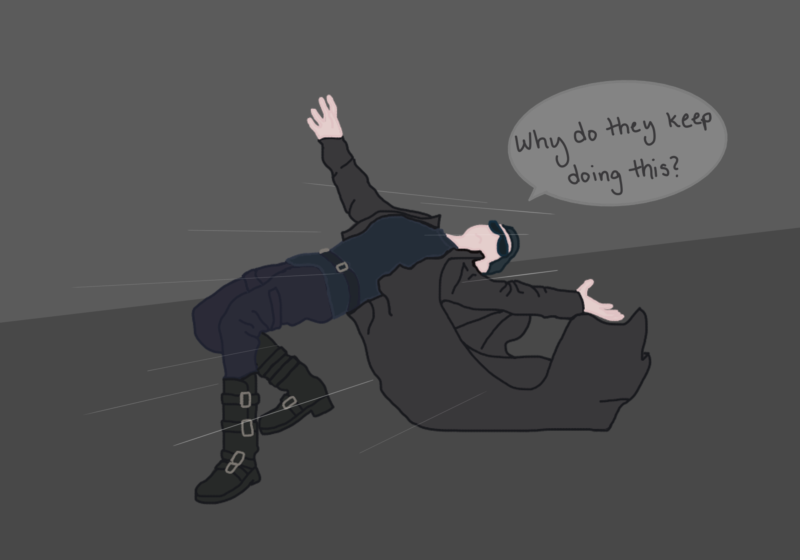2.5/5 stars
Going into this film, I had heard that it was infuriatingly terrible, especially to “Matrix” fans. As a fan of the first “Matrix” film (I have not seen the other sequels), I felt that there may not be any significance to this installment that the first film hasn’t already covered. Now that I have seen it, I can say that it served nothing. Nothing good. Nothing bad, which is arguably more offensive than if it were simply a terrible film.
“The Matrix Resurrections” follows Tom Anderson (Keanu Reeves), now a video game designer with a “respectable software company.” In this world, all the events of the last three films were apparently designed into massively popular video games also titled “The Matrix.” Now, the company orders Anderson to make a sequel to “The Matrix,” even though Tom doesn’t feel there is anywhere else to go with the franchise (you get it?). As a designer, Anderson feels like something is strange about his own existence, as if his world isn’t what it seems to be. This is made more clear when he is visited by a woman named Tiffany (Carrie-Anne Moss), who he instantly has a connection with. It is only when he is once again visited by Morpheus that he realizes that he truly lives in the Matrix, that he is Neo, that Tiffany is Trinity, and that his games are based on true events.
It seems like director Lana Wachowski really tried to throw every idea against the wall to see what sticks. However, when some ideas fell off the wall, she forced them to stick anyway. The film tries to be an analogy to an iconic storyteller who designed a story that many deemed very profound and is then forced to make another sequel by greedy executives. However, it immediately drops that story as soon as Neo disconnects from the Matrix, and then just becomes another film with too much exposition. While watching the movie at Hoyt Auditorium, I went to the bathroom, and by the time I came back, the characters were already talking about some other piece of exposition, and I was officially confused for the remainder of the film. This was especially insufferable as the film limps and trudges for two and a half hours.
One thing I remember about the original “Matrix” movie is how well-made and beautifully stylized the fight scenes were. But the differences between Neo and Morpheus’ training scenes in 1999 and 2021 are the visual effects and believability of the fight. The fight scenes are probably more rubbery now then the Agent Smith fight from “The Matrix Reloaded.” None of these scenes feel quite as visceral or raw as those from the first film did, and prevents them from resonating with audiences or becoming immediately iconic.
The performances are also lackluster and not even iconically terrible. Keanu Reeves continues to play himself, as he does in many other films, and nothing interesting now really comes from more than 20 years of people experiencing and understanding “The Matrix.” Carrie-Anne Moss seems to be putting more effort into her reprisal of Trinity, as she plays the character that starts Neo’s journey into understanding his environment. Yahya Abdul-Mateen II replaces Laurence Fishburne as Morpheus, but seems to confuse the role of the wise mentor with this casual suave dude who tries to make quips with Neo. It seems out of place, and doesn’t show the character as respected and cool, which Fishburne mastered in his reserved and serious 1999 portrayal. Another replacement is Jonathan Groff taking over from Hugo Weaving as Agent Smith. Groff attempts to replicate Weaving’s unique voice, but ultimately makes it less intimidating and more cringy.
Although I have already written a lot of what I thought about “The Matrix Resurrections,” I strangely do not feel any strong emotions toward these criticisms. I felt neutral after seeing it, bored by the film’s qualities, and really had to think more about it to formulate any criticisms I could use for this review. I just need to find a film that emotionally moves me. I could work with that.





